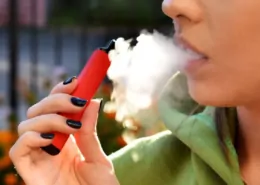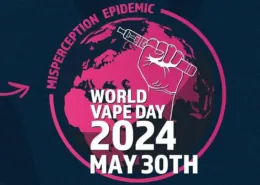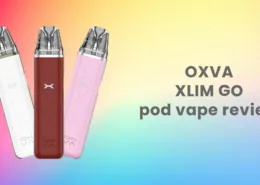Poland Delays Ban on Selling E-cigarettes to Minors Until Q2 2025
Poland needs effective regulations to prevent the sale of e-cigarettes, both with and without nicotine, to minors. The current laws fail to adequately address the issue, making these products too easily accessible to young people. The Ministry of Health has prepared amendments to the existing legislation to tackle this problem. However, according to the latest version of the draft, the new regulations are unlikely to come into force before the second quarter of 2025.
Existing Ban Lacks Enforcement
The current ban on selling tobacco products, electronic cigarettes, or spare containers with nicotine liquid to people under 18 years old, regulated by Article 6 of the Act on the Protection of Health Against the Consequences of Using Tobacco and Tobacco Products, does not work in practice. Moreover, it does not cover products that do not contain nicotine. Jacek Fundowicz, President of the Board of the Institute of Forecasts and Economic Analysis of the Scientific Foundation, emphasized during a meeting of the Parliamentary Team for Counteracting Addictions in February that the provisions exist but are not enforced.
Proposed Amendments and Implementation Timeline
In July, the Ministry of Health presented a draft amendment to the Act, aiming to introduce a ban on selling all types of electronic cigarettes and spare containers to people under 18, regardless of whether the product contains nicotine. The draft also prohibits any kind of promotion and advertising for such products. While Minister of Health Izabela Leszczyna initially intended for the regulations to take effect from January 1, 2025, it has become clear that this timeline is no longer feasible.
The latest version of the draft, published after public consultations, includes changes to extend the transition period for the new provisions to come into force. The amended draft allows electronic cigarettes or spare containers containing nicotine-free liquid that do not meet the requirements set forth by the new law to remain in circulation for no longer than six months from the date the provisions come into effect.
Katarzyna Fortak-Karasińska, an attorney-at-law and founder of the F/K Legal law firm, explains that this change essentially delays the implementation of the law. Products with old packaging, lacking specific warnings, will not be allowed to enter the market only after six months from the law’s effective date.
The Ministry of Health rejected proposals to allow the sale of nicotine-free liquids in containers larger than 10 ml (usually 60 ml), which would give users the opportunity to add their own “nicotine base” according to their preferences. Tobacco industry companies suggested this change, arguing that it would potentially lead to the emergence of a “gray market” and expose consumers to unsafe, unauthorized tools. The Ministry maintains that enabling users to add “nicotine base” to nicotine-free liquids poses a significant health risk, as it prevents controlling nicotine concentrations in the product.
The new version of the draft not only introduces a six-month transition period but also requires notification to the European Commission, a process that will take three months. However, the draft can only be submitted after approval by the Council of Ministers, which has not yet occurred. Consequently, the Ministry of Health estimates that the draft law should come into force no earlier than the second quarter of 2025.
Calls for Comprehensive Measures
Attorney Fortak-Karasińska emphasizes that the proposed changes do not fulfill the demands of pro-health communities for a complete ban on e-cigarette sales. She argues that there are no legal obstacles or prohibitions under European law that would prevent introducing a total ban on e-cigarettes.
Fortak-Karasińska points out that while a Member State like Poland must notify the Commission and provide arguments for imposing a ban on a specific category of tobacco products, the Commission has six months to approve the national regulations. This requirement for European consultation stems from the fact that the European Tobacco Directive precisely defines the rules for selling tobacco products, and any deviation requires agreement at the European level.
Belgium serves as an example of a country that successfully completed this procedure, with a ban on the sale of disposable e-cigarettes set to take effect on January 1, 2026, as part of its national strategy for a tobacco-free generation 2022-2028.
Attractiveness of Disposable E-cigarettes to Youth
According to a report by the Rotary Club Warsaw and the Institute of Social and Market Research, prepared for World No Tobacco Day, young people find disposable e-cigarettes the most attractive nicotine product (37% of responses), followed by tobacco heaters (26%) and nicotine pouches (10%). Interestingly, 69% of young people declare that the use of nicotine products is a problem in Poland.
The report’s authors stress that law enforcement in the area of nicotine products is ineffective and that the implementation of overdue directives, such as those concerning flavored heated tobacco products, is necessary.
- Brazil Police Crack Down on E-Cigarette Smuggling - July 30, 2025
- Experts Urge South Africa to Adopt Science-Based Vape Policies - July 30, 2025
- Texas to Ban Chinese-Made Vapes Under New Law (SB 2024) - July 30, 2025









